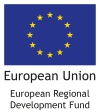Much more contributed to social inclusion of the middle-aged men with addiction problems in their past
The Much more project contributed to better social inclusion of the middle-aged men who have had addiction problems in their past. The project objective was to provide social support for men and thus empower them to reunite with their families and the society. Over 120 men were reached through peer-group activities in Sweden, Latvia and Finland.
The project partners from Gävle, Riga and Turku developed and tested an intervention model on how to involve target group men in planning and taking part in peer group activities. Based on the peer-group participants’ interest, the men tried different things from art therapy, cooking, hiking, and peer-group discussions in non-judgemental atmosphere. The methods used in different cities varied, but they all focused on participatory and easily accessible peer-group activities. Over half of the men kept coming back to the meetings and found them beneficial to them, so the project goals were reached.
Furthermore, the project also contributed to the capacity of health and social care professionals working with the target group that is difficult to reach. The partners organised several trainings for professionals who wish to try new methods to work with their clients. In total, over 50 professionals were reached in the project trainings.
The project compiled their most relevant learnings from trainings as a toolbox to be further utilised by other professionals. In addition, pros and cons of different participatory methods tested in the peer-groups were presented in the SWOT analysis.
Project website: projectmuchmore.weebly.com
- The project objective was to provide social support for men and thus empower them to reunite with their families and the society.
- Over 120 men were reached through peer-group activities in Sweden, Latvia and Finland.


